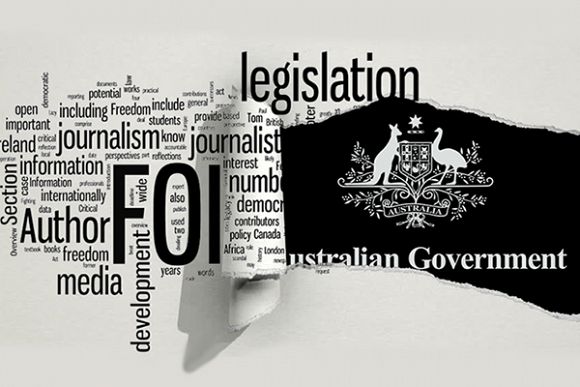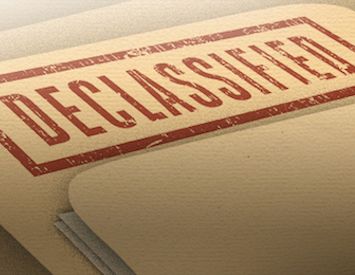Extracting documents covered by the NSW Government Information (Public Access) Act 2009 (GIPA) is now a circus with the primary focus ensuring a complete lack of transparency and accountability.
Given the ongoing industrial logging of native forests, obtaining data on forest species is critical in terms of evaluating their status.
Objectives of the Act are admirable.
Object of Act:
(1) In order to maintain and advance a system of responsible and representative democratic government that is open, accountable, fair and effective, the object of this Act is to open government information to the public by;
(a) authorising and encouraging the proactive public release of government information by agencies; and
(b) giving members of the public an enforceable right to access government information; and
(c) providing that access to government information is restricted only when there is an overriding public interest against disclosure.
In reality, the Government has ensured the complete opposite. Getting information that should be in the public arena is now made as difficult and time consuming as possible. A couple of examples provided by Australians For Animals NSW Inc (AFA) in very recent times demonstrate an unacceptable situation.
The charity kept notes detailing attempts to submit and pay the Natural Resources Commission (NRC) for a GIPA request. A GIPA application must be accompanied by $30 fee.
On Monday, I emailed a GIPA request to the NRC (via the one and only email on the NRC website) for copies of various reviews and research relating to a particular wildlife species impacted by Forestry Corporation NSW’s (FCNSW) industrial logging.
There are no instructions or a form on the NRC website as to how anyone submits a request or pays a GIPA application fee.
There was no response to AFA’s emailed GIPA request.
Tuesday. I made two calls and received only message machine response. Sent another email — all communication focused on trying to find out how to pay the GIPA application fee.
Wednesday and finally, someone calls back from NRC:
AFA:[Explained the problem of trying to pay for a GIPA application.]
NRC: Oh, we're an independent agency, I don't think we do GIPA.
AFA: Yes, you do. The details are on the NRC website but no instructions on how to pay.
NRC: We can't take money. We don't have the facility. I'll have to call you back.
NRC:[Five minutes later.] You can send a cheque to the NRC.
AFA: I made the request two days ago, we have delayed mail because of the floods, will the time start from my earlier email? [There’s a time frame for GIPA requests.]
NRC: I'll have to call you back on that.
NRC:[Five minutes later.] Yes, we did receive your request on Monday so it will be dated from then.
AFA: So how would we have known as there was no response?
NRC: I'll have to call you back on that.
AFA: Really, all we want to do is pay the fee. Every other government department has a link or a form.
NRC: Oh, I don't think we have to.
AFA: Yes, you do, otherwise you're probably not complying with the GIPA Act. So, do you have bank transfer ?
NRC: I don't think so.
AFA: Well, what then?
NRC: If you can send your cheque.
AFA: How will anyone know what it's for? Is there a reference number?
NRC: I'll have to get back to you on that.
AFA: Can you let management know that there’s no response to an emailed GIPA request?
NRC: Oh, I'll do that straight away. I'll make sure you receive an acknowledgement to your email today.
A week passes. No email from NRC acknowledging the GIPA request.
The GIPA Act specifies:
Agencies must have agency information guide:
(1) An agency (other than a minister) must have a guide (its agency information guide) that:
(f) specifies the manner in which the agency makes (or will make) government information publicly available; and
(g) identifies the kinds of information that are (or will be) made publicly available free of charge and those kinds for which a charge is (or will be) imposed.
(2) An agency must make government information publicly available as provided by its agency information guide.
This is the same agency withholding its ‘Final report coastal IFOA operations post 2019-2020 wildfires’ completed in June 2021, detailing the damage to state forests as a result of the catastrophic bushfires. The report has been kept secret, marked cabinet-in-confidence and is only available via leaked information.
The document contains damning evidence of government irresponsibility and major environmental issues.
The report calls for moratoriums on state forests which have sustained appalling damage. Forests identified as at extreme risk with recommendations that harvesting be suspended for three years continue to be logged.
Other forest management zones assessed at high and medium risk with recommendations for temporary refuges and additional measures designed to protect remaining forests are being logged without implementation of the recommendations.
As a result of the report being classified as a cabinet-in-confidence document, its contents are immune from GIPA requests and will not be tabled in Parliament until such time as the Minister for Planning, Anthony Roberts, approves the release.
Under provisions of the Natural Resources Commission Act, the report is supposed to be released in a ‘reasonable time’. The NSW Government definition of a reasonable time could mean a number of years, if not a decade. Legal challenges offer little hope of obtaining the document.
Next example of the freedom of information policies of the Perrottet Government is the FCNSW, a corporation dedicated to ensuring the least amount of information is made available to the public.
The FCNSW website has a link to a form for a GIPA request. But paying the application fee of $30 is yet another circus.
Option 1: Call the FCNSW on the only website number published (which happens to be the main line to the office) to pay by credit card.
No one answers. You can only leave a message which assures the caller that someone will call you back.
Left messages — no response.
Option 2: You can pay the $30 by bank transfer.
No, you can’t, because the bank details and relevant numbers are incorrect.
Option 3: You can transfer the fee from your local bank.
This may or may not work, requiring in AFA’s case a one hour return trip to the nearest bank not impacted by major floods. In any event, if this is the only workable option, it means making a journey to your bank to file the GIPA application fee. No petrol costs paid for by the Government.
Option 4: Send a cheque in the mail. (Assuming you still use cheques.)
This delays the request which could be time sensitive as Australia Post isn’t exactly rushing mail through to local post offices as many were flooded and damaged.
All in all, a completely unacceptable situation demonstrating utter contempt by the NSW Government to be transparent and accountable.
At the federal level, obtaining freedom of information requires Olympic dedication.
So much for democratic governments.
Sue Arnold is an IA columnist and freelance investigative journalist. You can follow Sue on Twitter @koalacrisis.
Related Articles
- Perrottet Government leaves flood victims to fend for themselves
- #1 TOP STORY OF 2021: Dominic Perrottet drawn into ICAC gun club scandal
- KERRYN PHELPS: Perrottet congratulates NSW — condemns to COVID chaos
- Perrottet’s shock population plan to stuff the nation
- Dominic Perrotett set to prioritise 'family values' during his tenure
 This work is licensed under a Creative Commons Attribution-NonCommercial-NoDerivs 3.0 Australia License
This work is licensed under a Creative Commons Attribution-NonCommercial-NoDerivs 3.0 Australia License
Support independent journalism Subscribe to IA.
















